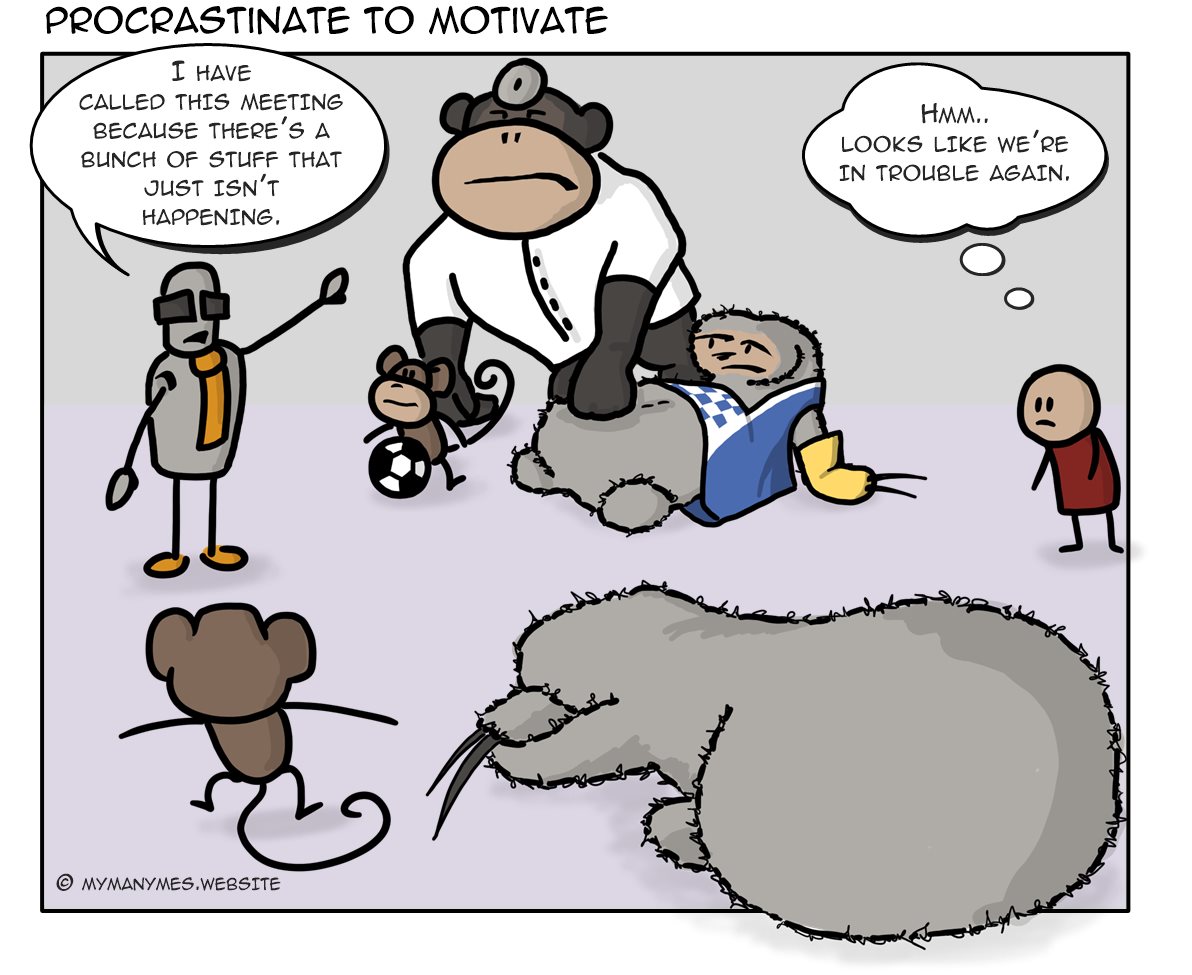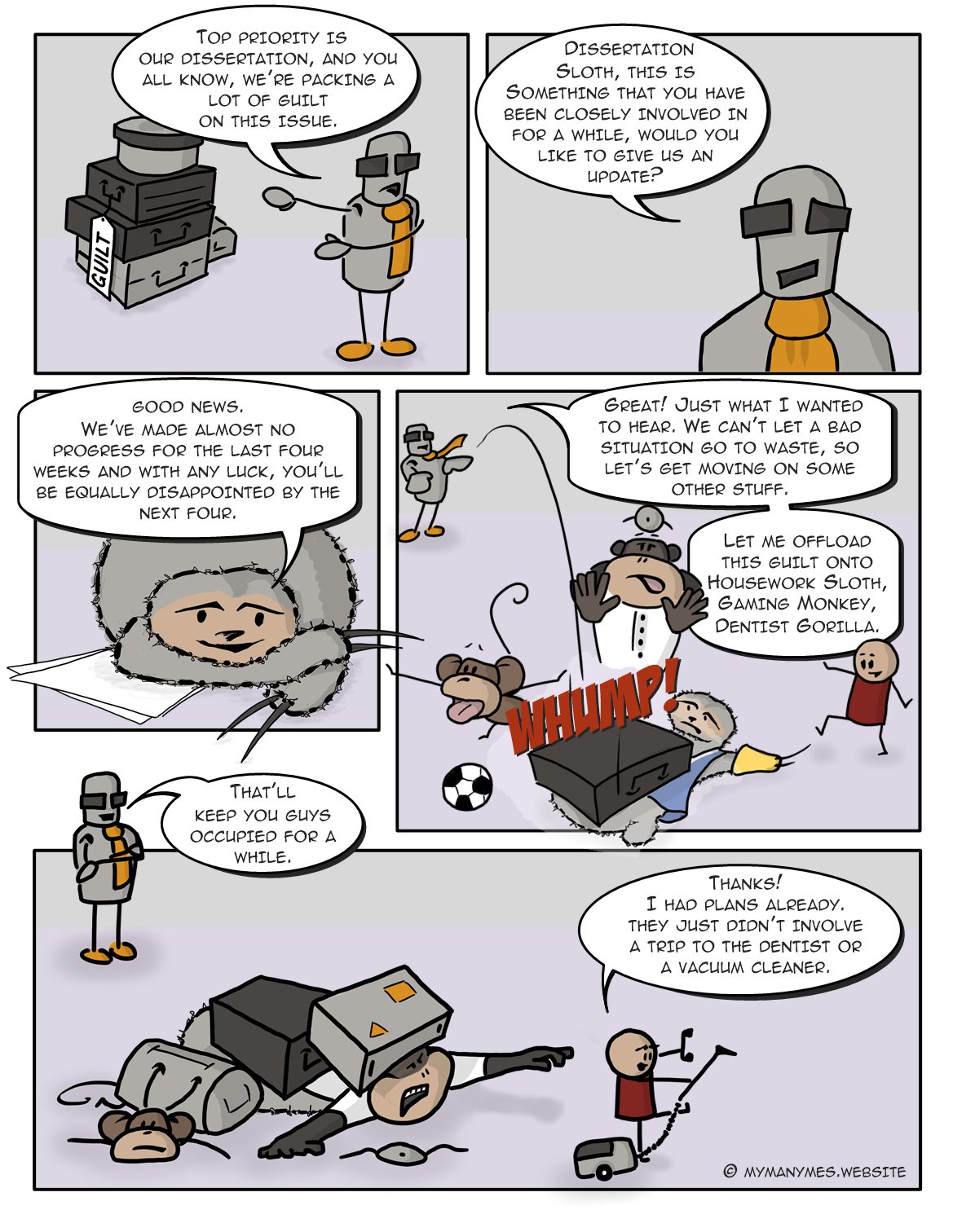Structured Procrastination


The Real Definitions of
I SHOULD
"I ought to but I don't want to."
YOU SHOULD
"You ought to and I don't care that you don't want to."
We human beings much prefer to do what we choose to do instead of what we should do. That's because we subconsciously associate "should stuff" with things we don't want to do. There is in fact plenty of stuff that we should do and want to do. For example, we "should" eat and sleep regularly but as most of us we want to eat and to sleep regularly, we don't label these activities with the word "should".
Make Guilt Work for You
What prevents us from doing just what we want is this thing called guilt. Structured procrastination is a technique described by John Perry that harnesses the guilt arising from not performing an important task. This guilt can then be channelled away from us by performing other important but lower priority tasks. As we are "choosing" to do something other that what we should be doing, we often want to start these lower priority tasks even though under normal circumstances we would avoid them.
The key to this technique is to plan or structure important alternative tasks in advance to ensure your efforts are spent on these when any guilt arises.
Believe it or not, this technique actually works and John Perry even won a Nobel Prize for it (albeit the Ig sort). The obvious "hole" in this method is when you really, really should be working on the priority task. John Perry suggests side stepping the issue by psyching yourself into believing a lesser task without a hard deadline is in fact your primary task. This isn't as silly as it sounds because most people have a warped sense of priorities (even if they don't realise it). Therefore it's simply a matter of bending things a little bit more than usual.
However if you have yet to fully master the art of self-delusion, it is worth considering other ways to approach your priority tasks. A good one is Eating a Frog which may need some prior slicing and dicing.
You can read more about structured procrastination by visiting John Perry's structuredprocrastination.com site.
* an asterisk at the end of a link means that if you click this link you will be taken to another site.
